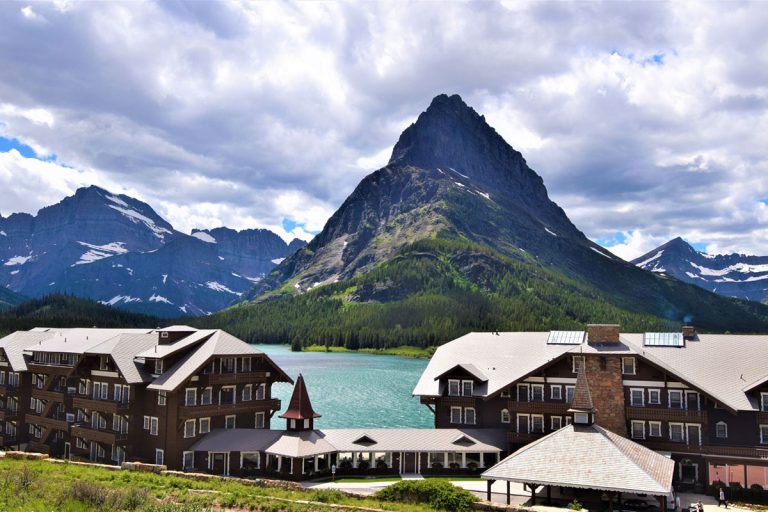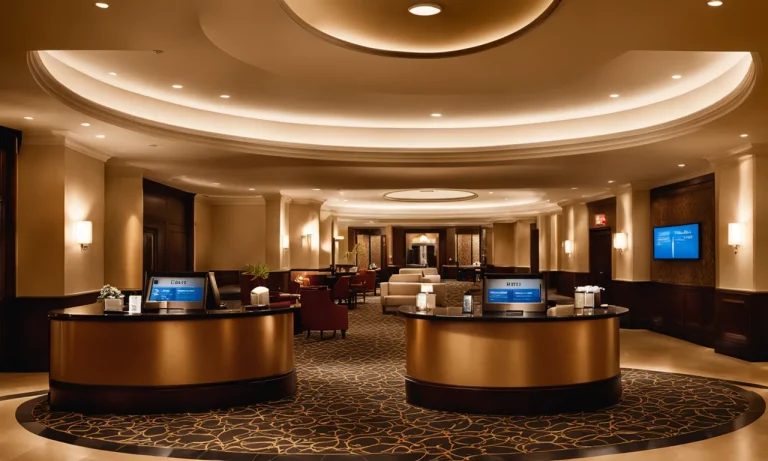Being a tenant can come with its own set of challenges, and one of those challenges is dealing with unexpected housing problems that can disrupt your living situation. If you find yourself in a situation where your living space is uninhabitable or unsafe, you may need to temporarily move out and stay in a hotel.
However, the question arises: Who pays for the hotel stay? Does the landlord have to foot the bill or is it the tenant’s responsibility? In this article, we’ll explore the circumstances under which a landlord may be required to pay for a tenant’s hotel room and what steps you can take to protect yourself as a tenant.
What is considered uninhabitable or unsafe living conditions?
When a tenant is living in conditions that are unsafe or uninhabitable, the landlord is responsible for making necessary repairs. In some cases, these repairs may take longer than a day or two, during which time the tenant cannot live in the unit. In such cases, the landlord may have to pay for the tenant’s hotel room until the repairs are made.
Uninhabitable or unsafe living conditions can take many forms. Lack of basic utilities like water, electricity, or heating is a common example. In some cases, the landlord may turn off utilities in an attempt to force a tenant to vacate the property. This is illegal and can result in the landlord being required to pay for a tenant’s hotel room.
The presence of hazardous materials such as mold, lead, or asbestos can also make a unit uninhabitable. Exposure to these materials can cause serious health problems, and it is the landlord’s responsibility to remove them. If a tenant is forced to leave a unit due to hazardous materials, the landlord may need to pay for a hotel room.
Structural damage that poses a threat to the tenant’s safety is another example of an uninhabitable living condition. A damaged roof, for example, can lead to leaks and water damage, making a unit unsafe to live in. If a tenant has to leave a unit due to structural damage, the landlord may have to pay for a hotel room until the repairs are made.
Infestations of pests like bedbugs or rodents can also make a unit uninhabitable. These pests can spread disease and cause damage to a tenant’s property. If a tenant is forced to leave a unit due to a pest infestation, the landlord may need to pay for a hotel room.
When is the landlord responsible for paying for a hotel room?
As a tenant, it is important to know your rights when it comes to living conditions. In some cases, the living conditions in a rental property can become uninhabitable or unsafe. In such situations, the landlord may be responsible for providing alternative housing, such as a hotel room. The following are some scenarios in which a landlord may be required to pay for a hotel room:
- Uninhabitable or unsafe living conditions: If the living conditions in a rental property are considered uninhabitable or unsafe due to issues such as mold, pest infestations, or lack of heat or hot water, the landlord may be responsible for providing alternative housing. It is worth mentioning that what is considered uninhabitable or unsafe may vary depending on the state or city laws.
- Delayed repairs: If the landlord fails to make necessary repairs in a timely manner, and the living conditions become uninhabitable or unsafe, the landlord may be responsible for providing alternative housing. Keep in mind that if the tenant caused the damage, the landlord may not be responsible for paying for a hotel room.
- Landlord’s responsibility: If the landlord is responsible for the damages that caused the living conditions to be uninhabitable, the landlord may be responsible for providing alternative housing. For example, if a pipe bursts and causes flooding, and the landlord fails to fix the issue, they may be responsible for paying for a hotel room for the tenant.
It is important to note that the landlord may not be responsible for paying for a hotel room if the living conditions are still considered habitable, or if the tenant caused the damage that made the living conditions unsafe. Unfortunately, some landlords may try to avoid their responsibilities when it comes to providing alternative housing. If you find yourself in a situation where you believe your landlord should provide alternative housing, it is important to speak up and know your rights as a tenant.
For more information on tenant rights and landlord responsibilities, you can visit websites such as Nolo.com or HUD.gov. Keep in mind that laws and regulations may vary depending on your location, so it is always a good idea to seek legal advice if you are unsure about your rights as a tenant.
What are the tenant’s responsibilities?
When a rental property becomes uninhabitable or unsafe, tenants have a right to demand repairs from their landlords. However, what happens if the repairs require the tenant to move out of the property? In certain situations, the landlord may be responsible for providing temporary housing for the tenant. Here are some responsibilities that tenants should keep in mind:
- Notify the landlord about the living conditions as soon as possible. Tenants should inform their landlord in writing about the unsafe living conditions. This can include issues such as flooding, a broken heating system, or a gas leak.
- Provide proof of the living conditions being uninhabitable or unsafe. Tenants should document the unsafe living conditions, take photos, and keep all receipts related to the repairs.
- Allow the landlord a reasonable amount of time to make the necessary repairs. Landlords are given a reasonable amount of time to make repairs. This can vary depending on the severity of the issue, but tenants should be patient and allow the landlord time to take action.
- Cooperate with the landlord in finding temporary housing solutions. If the repairs require the tenant to move out of the property, the tenant should cooperate with the landlord to find temporary housing solutions. This can include staying with friends or family, or the landlord may provide a hotel room for the tenant.
- Keep all receipts and documentation related to the hotel stay. If the landlord provides a hotel room for the tenant, the tenant should keep all receipts and documentation related to the stay. This can include expenses such as meals and transportation.
It is worth mentioning that tenants should always try to work with their landlord to find a mutually beneficial solution. On the other hand, if the landlord fails to make repairs in a reasonable amount of time, tenants may be able to withhold rent or even terminate their lease. Keep in mind that these situations can vary depending on state and local laws, so tenants should research their rights and responsibilities in their specific location. Additionally, if you need more information, you can check Nolo for more resources.
What are the landlord’s responsibilities?
Landlords have a legal responsibility to ensure that their properties are safe and habitable for their tenants. This means that they must make necessary repairs in a timely manner to maintain the living conditions of the property. If the repairs will take longer than expected, the landlord should provide temporary housing solutions to the tenant until the repairs are completed.
However, in some cases, the living conditions of the property may become uninhabitable or unsafe due to the necessary repairs. In such instances, the landlord may have to pay for the tenant’s hotel stay. It is worth mentioning that the landlord is obligated to ensure that the tenant is not incurring any additional expenses due to the repairs.
It is important to remember that the landlord is responsible for any damage to the tenant’s personal property during the repairs. The tenant should keep a detailed record of any damaged items and inform the landlord as soon as possible. The landlord should compensate the tenant for any damages caused.
On the other hand, it is important to note that the landlord is not responsible for paying for a tenant’s hotel stay for reasons other than necessary repairs. For example, if the tenant decides to travel or leave the property for personal reasons, the landlord is not obligated to pay for their hotel stay.
What can tenants do to protect themselves?
As a tenant, it is important to understand your rights and responsibilities to protect yourself in case of any issues with your living conditions that may arise. Here are some steps you can take:
- Read the lease agreement carefully to understand their rights and responsibilities
- Take photos and document any issues with the living conditions
- Communicate with the landlord in writing to have a paper trail of the discussion
- Contact a lawyer or a tenant’s rights organization for legal advice and support
By taking these steps, you can ensure that you have a strong case in case of any disputes with your landlord. Keep in mind that it is worth mentioning that different states have different laws and regulations regarding tenants’ rights.
It is also important to note that some popular hotel chains, such as Marriott and Hilton, offer extended stay options that can be a good alternative if you need to find temporary housing due to issues with your rental property.
Conclusion
In conclusion, living in an unsafe or uninhabitable space can be stressful and disruptive, but tenants have rights to ensure that their living conditions are safe and habitable. If a tenant needs to temporarily move out and stay in a hotel, the landlord may be responsible for paying for the hotel stay if the living conditions are deemed unsafe or uninhabitable. However, tenants should also take necessary steps to protect themselves by understanding their lease agreements, documenting any issues with the living conditions, and communicating with their landlords in writing. By doing so, they can ensure that their rights are protected and that they can continue to live in safe and habitable conditions.






